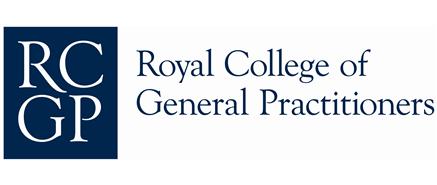Research
2019
Relationship between compassion and predictors of depression in parents of people with an eating disorder
What is the purpose of this research?
The purpose of this research is to explore the wellbeing of parents of a loved one with an eating disorder and see if there are certain experiences you might have as a carer that may contribute to depressed mood. This will help develop a greater understanding of the needs of carers and help develop interventions focussed on supporting carer wellbeing.
Who can take part?
You can take part in this study if you are a parent of someone with an eating disorder. You also must be over 18 years of age and have a good understanding of written English.
*please note that this research is hoping to look at both contributors and protective factors to depressed mood, therefore, parents not experiencing depressed mood are equally as suitable to take part as parents that do consider themselves to be experiencing depressed mood.
What does the study involve?
The study will involve completing six questionnaires on an online platform. This will take approximately 30-35 minutes. The questionnaires will ask you about different aspects of your mood and thoughts about yourself. You will also be asked to provide some general information about yourself. As a thank you, you will be given the opportunity to enter into a prize draw to win one of two £50 amazon vouchers.
How can you take part?
To read further information about the study please follow the link: https://cccusocialsciences.az1.qualtrics.com/jfe/form/SV_6sPalN4b2uJOZtX
If you have any questions about the study, please contact Pamela Fox at p.p.fox406@canterbury.ac.uk

What family behaviours and structures are most adverse to an eating disorder: a semi-structured interview study with female eating disorder survivors
The purpose of this study is to assess what types of family behaviours are bigger risks to a person suffering from an eating disorder.
Semi-structured interviews will be given to show an eating disorder survivor's perspective of the role a first degree family play in the prevention/recovery of an eating disorder. Interviews will be given through a Skype call or the person's local UWS library, depending on their location. The interview will last roughly 20-30 minutes and they will be asked questions on eating disorders using hypothetical questions to help them not to feel triggered or distressed.
All participants in the study must have volunteer/working experience within eating disorders to ensure they are robust enough to take part in this project.
Please contact Claudia at B00287333@studentmail.uws.ac.uk for more information or to take part in this study. Many thanks.

Investigating potential changes within sleep in females diagnosed with/recovered from Anorexia Nervosa.
I am a third-year psychology student at the University of Northampton working on my dissertation which investigates potential changes within sleep by females diagnosed with Anorexia Nervosa and those who have recovered from it.
Previous research has shown that individuals with anorexia nervosa often experience disrupted and irregular sleep (Kim et al, 2010), particularly in comparison to healthy controls (Sauchelli et al, 2016). The aim of this study is to investigate whether current and recovered anorexia patients experience a lower quality of sleep when compared to healthy controls using sleep recording watches to collect information relating to sleep duration, sleep waves, restlessness and the amount of time taken to fall asleep. The study also aims to discover the impact that the duration of illness/ recovery, as well as the presence of depressive and anxiety related traits, has on these aspects of sleep- and their potential subsequent impact on one’s ability to be successful in recovery.
Please be aware that a question within the study will ask you to provide your current weight. Also, a questionnaire will focus on your eating habits and another will ask questions such as "do you feel bad about yourself?" You are completely free to not answer any questions that make you feel uncomfortable or you may just not want to answer. Furthermore, all data will be kept confidential and anonymous.
Participation will involve three stages.
-
The first is an online form that can be accessed through the link provided.
-
Next you are being asked to wear a sleep watch (fit-bit) for three consecutive days and nights (this will be sent to you via post, the process is fully explained within the first stage of the study). It should be noted that the study will be of no personal cost to you as all fees will be pre-paid by the researcher.
-
Lastly, you will be sent a link to questionnaires that should not take more than 45 minutes of your time to complete.
This link will take you to the first stage of participation https://goo.gl/forms/yc0cHy70Swy1CeWr1
Thank you for your time.

2018
What factors may impact eating disorder recovery?
This new research study is exploring some of the factors that may impact recovery from eating disorders; specifically whether recovery time is affected when inpatients are treated in facilities far from home. This is an important issue that needs to be addressed by our health services in the UK.
The research team are looking for people who are aged 18+ and have recovered from an eating disorder to complete a short questionnaire. Questions will be about your support network during treatment and other relating factors. To get involved, follow this link.

Depression during pregnancy rises in a generation
Avon Longitudinal Study of Parents and Children have released new research findings about the rise in depression during pregnancy. Today 25% of young mums have depressive symptoms compared to 17% in the 1990s. Pregnancy can be an especially difficult time for anyone struggling with an eating disorder and is something that professionals should be made aware of. Click here to find out more about this research or view the published article here.


How can we improve primary care for children and young people with eating disorders?
If you are (or have been) a carer of a child or young person with an eating disorder or eating issue then please do consider taking part in a study being run by the Bristol Eating Disorders Health Integration team.
The team is looking for carers who can tell them about their experiences of seeking help from GPs for their child and their views about how these services could be improved. For further details please contact helen.malson@uwe.ac.uk

2017
Research into autobiographical memory for Anorexia Nervosa
This research will investigate the possible changes in autobiographical memory in individuals diagnosed with Anorexia Nervosa, as well as in individuals who have already recovered from it.
The completion of my research project would involve filling in an online form which should not take more than 45 minutes from your time. The following link will guide you through every step of the process: https://goo.gl/hjDN32. Thank you very much for your time and help.


New Research into Web-Based Intervention 'We Can' for Carers of Adults with Anorexia Nervosa
'We Can' is an online skills training programme designed to support carers of people with anorexia nervosa. This study aims to explore the effectiveness of We Can to support both individuals with anorexia and carers using the package.
This study involves completing an online skills programme consisting of:
- Completion of 8 online interactive modules over a 12-week period
- Access to an online chat forum with other carers
- Completion of 4 sets of online questionnaires over a 12-month period
If you are a carer or an individual with anorexia, whose carer is also taking part in the study, you can participate by visiting the study website (https://icare-wecan.minddistrict.com/) and signing up for an account. If eligible, you will be able to access the online modules. For more information please contact Lucy Spencer at lucy.spencer@kcl.ac.uk or 0207 848 5608.
Recent research conducted by King's College London identifies a genetic variant for Anorexia Nervosa
This new and significant research supports EDA's view that eating disorders are caused by the complex interplay of biological, social and psychological factors.
‘This is the largest and most statistically powerful genetic study of anorexia nervosa ever conducted. We have analysed over 10 million genetic variations across the genome in 3,495 individuals with anorexia nervosa and 10,982 unaffected individuals’, said lead geneticist Dr Gerome Breen of King’s College London’s Institute of Psychiatry, Psychology & Neuroscience.
‘We identified one genetic variant associated with anorexia nervosa on chromosome 12, in a region previously shown to be associated with type 1 diabetes and autoimmune disorders,’ said lead investigator, Cynthia Bulik, PhD, FAED, founding director of the UNC Center of Excellence for Eating Disorders and a professor at Karolinska Institutet in Stockholm, Sweden.
Click here to see the full report.
UCL calls for participants in new study
University College London is looking for female participants aged 18-40 who are struggling with Anorexia Nervosa to take part in a research project, investigating the effect of oxytocin on social abilities and awareness of the body in Anorexia Nervosa. Participants will be asked to take part in two separate testing sessions, a maximum 3 days apart, and the study hopes to better understand Anorexia Nervosa. Participants will not be identified in the results and will be paid £40 at the end of the study to thank them for their time. Please email Laura Crucianelli at l.crucianelli@ucl.ac.uk for more information.


EDA is working with the University of Bath on a 3 year PhD research study, beginning October 2016, focussing on addressing eating disorders and body disaffection in schools.

EDA considers education and research as fundamental to its work, and its charitable objects include providing preventative education and resourcing organisations working with people affected by eating disorders. The project will be critically examining the impact of school-based eating disorder and body confidence programmes. This will include investigating how messages derived from both informal (popular media, social media) and formal health approaches to eating disorders, weight, eating and the body enter schools and then influence both teaching and learning about the body.
The continuing rise in eating disorders and body disaffection amongst young people suggests that it is becoming increasingly important for schools to provide a safe environment to discuss eating disorders. Early prevention of these potentially fatal mental health conditions is vital, especially due to the multiple social and economic impacts of the disorders.
UK schools’ contemporary programmes aim to improve perceptions of body image, to raise awareness, develop media literacy and tackle the problem of eating disorders. Focusing solely on the individual, this approach unfortunately ignores the broader sociocultural conditions that can provoke body disaffection. According to the research supervisors, Dr Rich and Professor Fullagar, ‘such an approach fails to recognise the limitations of a young person’s individual agency in the context of competing messages about healthy bodies that circulate emotions of fear, morality, shame and disgust’. Issues such as power and control may also be very influential. Effectively, these programmes do not provide a complete explanation of the complex pressures that can lead to eating disorders.
‘There is an urgent need for programmes to move beyond a focus on the individual and of the perils of the media, to more sophisticated understandings of how the intersection of culture, trauma, injustice and distress are lived through young people’s bodies and eating practices. The notion of body image is too easily conflated with selfie-culture as some kind of self-preoccupation when what is needed is a better understanding of how body confidence feels, moves and is undermined (often in gendered ways).’
This research will promote extensive and lasting change to the mindsets of young people, through the application of strategies that deal with the ‘broader environment (popular culture, parents, health promotion, sport and arts as well as mental health services)’. Ultimately, school programmes need to unite students and teachers to successfully examine these issues from different perspectives, all of which are important for the prevention of eating disorders in schools.
This extract is reproduced under the Creative Commons License. For the full article please see The Conversation.
EDA's Research Study 2014
EDA conducted a professional research study into primary healthcare for eating disorders in 2014, prior to our November Change Campaign at the Houses of Parliament. The research attracted significant publicity, generating interviews with BBC Radio 4 for Women’s Hour, BBC Radio 5 Live and BBC Scotland. Our research proved the anecdotal evidence from the thousands annually to our helplines that patients spend far too long waiting for treatment after GP referral, the majority at least over a month and many 4 months, 6 months and even 9 months. GPs are vital as they bear the brunt of the professional support during the wait and even after, providing vital medical monitoring to protect people’s hearts and minds from an ever-decreasing BMI and yet over a third of patients revealed that they were never offered any medical monitoring at all for their condition.
The results
-
Over half of patients (51%) spent less than 10 minutes with their GP during their initial consultation.
-
More than half (55%) had to go back multiple times before getting a referral.
-
Once they’d been referred, 48% had to wait over a month before their treatment started.
-
The research also shows that the majority (63%) of patients don’t feel their GP offered suitable help or advice about their condition.
-
45% felt their GP wasn’t caring or understanding about their illness.
-
41% weren’t even referred to a specialist at all.
-
But the vast majority of patients (88%) say no advice was available to their support network.
-
There’s also concern that a third (33%) of respondents say no offer was made to monitor their physical health.
-
More than half (55%) say GPs didn’t offer any practical solutions to help deal with their condition.
-
Only 15% of respondents say their doctor suggested speaking to charities or support groups.
-
Only 18% of patients said their GP was knowledgeable about their condition, only 19% said they were pro-active and 22% said they were neither kind, caring, knowledgeable or proactive.
-
28% of patients felt like time-wasters, 31% felt reluctant to seek any further help and 51% didn’t feel they were ill enough.
Research was carried out by Vision Critical on behalf of EDA: Eating Disorder Advice and cannot be reproduced without permission in writing.

EDA's New Online Course written for the Royal College of General Practitioners (RCGP)
As a result of this new research, EDA has written a new online course for the Royal College of General Practitioners (RCGP). With a reach of over 90,000 primary health care professionals and with credits towards CPD and revalidation, this course establishes best practice for GPs in their care for patients. This is vital as waiting times for more specialist services are so long; because many patients prefer to rely only on their GP; and since many are deemed ineligible for further care and support. With only 46% of those surviving an eating disorder, and increasing prevalence, GPs are under increasing pressure to monitor and safeguard the physical health of these vulnerable patients and also deliver care, support and signposting for parents and partners. The course was examined and approved in two rounds of peer review through GP members of the Royal College, practicing in various parts of the UK and then by the RCGP’s Director of E-learning. This course will underpin all further training courses that EDA delivers to medical, educational, sporting and business organisations. It offers an accreditation beyond that conferred by the CPD Association.
EDA is often asked to help contribute towards research or documentaries about eating disorders and there are many that we believe are reputable and worthwhile. We consider carefully all requests of this nature and select only those we feel would be suitable and sensitively managed and therefore allow the researchers or programme makers to advertise their needs for participants here on this page.
Recent research studies we have supported or taken part in as an organisation include: the University of Glasgow, University of Surrey, University of Bath, and University of Birmingham.
For more information about EDA's current research projects or for details on how to collaborate, please email us here.
If you would like to request a participant for a school or university research study, please complete and return the request form available here.